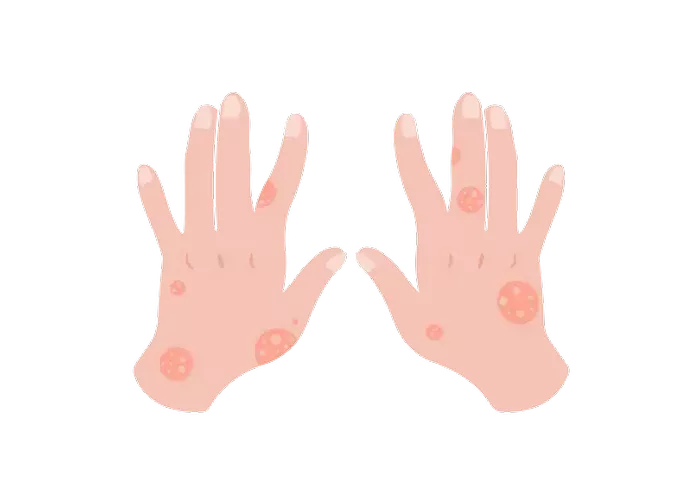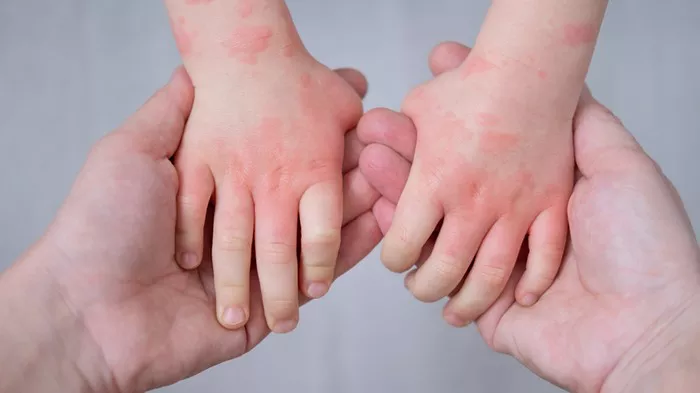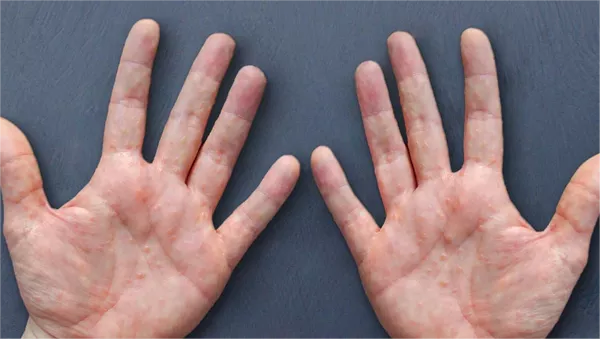Chronic Idiopathic Urticaria (CIU), also known as Chronic Spontaneous Urticaria (CSU), is a condition characterized by the presence of hives, or urticaria, for six weeks or longer without an identifiable cause. These hives are often red, itchy, and swollen welts that appear on the skin and can cause significant discomfort and impact quality of life. Despite extensive research, the exact cause of CIU remains unknown, hence the term “idiopathic,” which means arising spontaneously or from an obscure or unknown cause.
This article will delve into the various aspects of CIU, including its symptoms, diagnosis, potential triggers, treatment options, and the impact on patients’ lives.
Symptoms of CIU
The primary symptom of CIU is the presence of hives that persist for more than six weeks. These hives can vary in size and appear anywhere on the body. Key characteristics include:
- Red or Skin-Colored Welts: These welts can range from a few millimeters to several centimeters in diameter.
- Itching: The itching associated with CIU can be intense and distressing, often interfering with daily activities and sleep.
- Swelling (Angioedema): In some cases, patients may experience deeper swelling, known as angioedema, which commonly affects the lips, eyelids, and throat.
- Fluctuating Nature: Hives can appear and disappear frequently, often in different locations, without leaving scars or marks once they resolve.
Diagnosis of CIU
Diagnosing CIU involves a comprehensive evaluation by a healthcare professional, typically an allergist or dermatologist. The process includes:
1. Medical History and Physical Examination: The doctor will review the patient’s medical history, including the duration and pattern of hives, any potential triggers, and associated symptoms such as difficulty breathing or swallowing (which might indicate angioedema).
2. Exclusion of Underlying Causes: To confirm the diagnosis of CIU, other potential causes of chronic hives, such as infections, autoimmune diseases, hormonal disorders, and allergies, must be ruled out. This may involve blood tests, skin tests, and other diagnostic procedures.
3. Patient Diaries: Keeping a detailed diary of hives, including when they occur, potential triggers, and associated symptoms, can be helpful in diagnosing CIU and identifying patterns.
4. Symptom Assessment Tools: Tools such as the Urticaria Activity Score (UAS) or Chronic Urticaria Quality of Life Questionnaire (CU-Q2oL) may be used to assess the severity of symptoms and their impact on the patient’s quality of life.
Potential Triggers and Exacerbating Factors
While the exact cause of CIU is unknown, several factors can trigger or exacerbate the condition:
- Physical Stimuli: Pressure, friction, temperature changes, and sunlight can provoke hives in some individuals.
- Stress and Emotional Factors: Psychological stress and emotional disturbances are known to worsen CIU symptoms in many patients.
- Infections: Some infections, particularly viral infections, can trigger or exacerbate hives.
- Certain Medications: Non-steroidal anti-inflammatory drugs (NSAIDs), antibiotics, and other medications can trigger hives in susceptible individuals.
- Food and Food Additives: Although food allergies are not typically a cause of CIU, certain foods and additives can exacerbate symptoms in some patients.
- Autoimmune Factors: A subset of CIU patients may have an autoimmune component, where the body’s immune system mistakenly attacks healthy tissue, leading to hives.
Treatment Options for CIU
Managing CIU can be challenging due to its chronic and unpredictable nature. Treatment aims to relieve symptoms and improve the patient’s quality of life. Common treatment options include:
1. Antihistamines
Antihistamines are the first-line treatment for CIU. They work by blocking histamine, a chemical released during an allergic reaction that contributes to hives and itching. Non-sedating antihistamines are preferred due to their minimal side effects and include:
- Cetirizine: Effective and generally well-tolerated.
- Loratadine: Another commonly used antihistamine with a good safety profile.
- Fexofenadine: Known for its effectiveness and minimal sedative effects.
In some cases, higher doses of antihistamines or a combination of different antihistamines may be necessary to control symptoms.
SEE ALSO: Why Do I Have Itchy Hives?
2. Second-Line Treatments
If antihistamines alone do not adequately control symptoms, second-line treatments may be considered, including:
- Leukotriene Receptor Antagonists: Such as montelukast, which can help reduce inflammation and hives.
- H2 Antihistamines: Such as ranitidine, which can be used in combination with H1 antihistamines for better symptom control.
- Dapsone: An anti-inflammatory medication that may be effective in some patients.
3. Biologic Therapy
Omalizumab, a monoclonal antibody, has emerged as an effective treatment for CIU, particularly in patients who do not respond to antihistamines. It works by targeting immunoglobulin E (IgE), a key player in allergic reactions. Omalizumab is administered as a subcutaneous injection and has shown significant efficacy in reducing hives and improving quality of life.
4. Immunosuppressive Agents
In severe and refractory cases, immunosuppressive agents such as cyclosporine may be considered. These medications suppress the immune system and can help control symptoms. However, due to potential side effects, they are typically reserved for patients who do not respond to other treatments.
5. Lifestyle and Dietary Modifications
Lifestyle and dietary modifications can also play a role in managing CIU. These may include:
- Stress Management: Techniques such as mindfulness, meditation, and counseling can help reduce stress and its impact on CIU.
- Avoiding Triggers: Identifying and avoiding known triggers, such as certain foods, medications, or environmental factors, can help prevent flare-ups.
- Healthy Diet: Maintaining a balanced and healthy diet can support overall well-being and potentially reduce the severity of symptoms.
Impact on Quality of Life
CIU can significantly impact a patient’s quality of life due to its chronic and unpredictable nature. The persistent itching, discomfort, and appearance of hives can lead to:
- Sleep Disturbances: Intense itching can interfere with sleep, leading to fatigue and reduced daytime functioning.
- Emotional Distress: The chronic and visible nature of hives can cause embarrassment, anxiety, and depression in some patients.
- Social and Occupational Limitations: The physical discomfort and emotional distress associated with CIU can limit social interactions and affect work productivity.
- Financial Burden: The cost of medications, doctor visits, and potential time off work can add a financial burden to patients and their families.
Coping Strategies and Support
Living with CIU requires a multifaceted approach that includes medical management, lifestyle adjustments, and emotional support. Patients can benefit from:
- Patient Education: Understanding the condition and available treatments empowers patients to actively participate in their care.
- Support Groups: Connecting with others who have CIU can provide emotional support and practical advice for managing the condition.
- Regular Follow-Up: Ongoing communication with healthcare providers ensures that treatment plans are adjusted as needed to achieve optimal symptom control.
- Mental Health Support: Counseling or therapy can help patients cope with the emotional impact of CIU and develop effective stress management strategies.
Future Directions in CIU Research
Research into the underlying mechanisms and treatment of CIU is ongoing. Future directions include:
- Identifying Biomarkers: Finding specific biomarkers that can predict disease activity and treatment response could lead to more personalized and effective therapies.
- New Therapeutic Targets: Understanding the molecular and cellular pathways involved in CIU may reveal new therapeutic targets for drug development.
- Long-Term Efficacy and Safety of Biologics: Ongoing studies are evaluating the long-term efficacy and safety of biologic therapies, such as omalizumab, to ensure their continued use in CIU management.
Conclusion
Chronic Idiopathic Urticaria (CIU) is a challenging condition characterized by persistent hives without an identifiable cause. While the exact mechanisms remain unclear, effective management strategies, including antihistamines, biologic therapy, and lifestyle modifications, can significantly improve symptoms and quality of life for patients. Ongoing research holds promise for better understanding and treating this complex condition, offering hope for those affected by CIU. By staying informed, seeking appropriate medical care, and utilizing coping strategies, patients can manage their symptoms and lead fulfilling lives despite the challenges of CIU.
Related Topics:

























